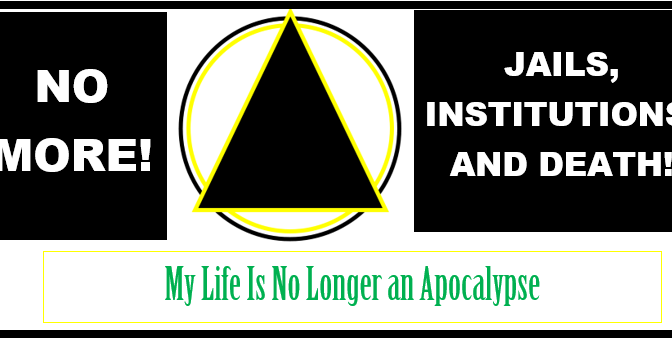CONFESSIONS OF A METH COOK
BLOG TALK RADIO OWNS ALL RIGHTS TO THIS CONTENT AUDIO, FACEBOOK OWNS ALL RIGHTS TO THE POSTED LITERARY CONTENT WE THANK THEM BOTH FOR THEIR KIND AND GENEROUS ONLINE SHARE POLICIES. THE LINK TO DALE GARRETT’S AUDIO LIBRARY IS BELOW. Know this: Once you post to Facebook, it belongs to the world.
The Untold Stories NOW TOLD!
Confessions of a Meth Lab Cook is an audio by blog talk radio and Dale Garrett. Dale Garrett is a wonderful guy who takes his experience strength and hope to the people who need to hear it most. He makes weekly audio shows at blog talk radio
http://www.blogtalkradio.com/thereslifeafterdrugs
“AS TIME HAS PASSED MANY HAVE SENT TO ME THEIR STORIES OF HOW THEIR LIVES HAVE BEEN TURNED INSIDE OUT BY THE DECISIONS AND ACTIONS THAT THEY MADE, NAMELY ALL LEADING BACK TO THE USE OR MAKING OF METHAMPHETAMINE, NOW THEY HAVE ASKED ME TO SHARE THEIR STORIES IN HOPES THAT BY DOING SO IT WILL SHOW OTHERS THE HORROR AND DEVASTATION THAT COMES ALONG WITH THIS SO CALLED GLAMOURS LIFESTYLE,, SO I INVITE YOU TO JOIN BOTH MYSELF AND MY HOST SARAH BETH AS WE TAKE YOU ON A JOURNEY THROUGH THE LIVES OF 3 YOUNG LADIES LIVES WHO GOT TRAPPED IN THE METH GAME, AND NEARLY LOST EVERYTHING,BUT….THERE IS A LIGHT AT THE END OF THE TUNNEL, FOR YOU SEE, THEY WERE BLESSED TO BE ABLE TO MAKE IT OUT OF THIS EVIL MADNESS THAT NOW PLAGUES OUR SOCIETY, SO JOIN US IF YOU WILL..FOR OUR SHOW “CONFESSIONS OF A METH COOK “THE UNTOLD STORIES” By Dale Garrett
http://www.blogtalkradio.com/thereslifeafterdrugs
WHO REALLY OWNS YOUR FACEBOOK POSTS?
Your Words and Information http://blogs.findlaw.com/law_and_life/2014/10/who-legally-owns-your-facebook-posts.html
While Facebook may say that you “own” your posts, it turns out that much of the legal impact of your ownership boils down to your privacy settings. Facebook is constantly making changes to its privacy policy, but the bottom line is this: Whatever words or information you post under the “Public” setting are fair game for anyone to use.
That means if you share your recipe on Facebook, and celebrity chef Bobby Flay decides to appropriate it for his next cookbook, you won’t be getting any royalties. This is partially because recipes generally aren’t available for copyright, but most of your posts containing words and information aren’t either.
Your Photos and Videos
Facebook users have slightly more rights to the photos and videos which you post to the site, as those works are easier to protect via copyright. However, Facebook’s terms allow them “a non-exclusive, transferable, sub-licensable, royalty-free, worldwide license to use any IP content that you post on or in connection with Facebook.” In layman’s terms, Facebook has license to use the photos and videos you post (which you own) in any way it sees fit, without paying you, and it can transfer that license to third parties.
Typically, you could sue a company like Facebook for using your image without your permission (or without paying you) under your rights of publicity. But by joining Facebook, you’ve essentially given the company carte blanche to do what it will with your images and videos, not to mention whomever Facebook decides to share your media with.
READ MORE WHAT ARE MY RIGHTS, FACEBOOK POSTS
New International Version
Blessed are the peacemakers, for they will be called children of God.
New Living Translation
God blesses those who work for peace, for they will be called the children of God.
English Standard Version
“Blessed are the peacemakers, for they shall be called sons of God.
Berean Study Bible
Blessed are the peacemakers, for they will be called sons of God.
Berean Literal Bible
Blessed are the peacemakers, for they will be called sons of God.
New American Standard Bible
“Blessed are the peacemakers, for they shall be called sons of God.
King James Bible
Blessed are the peacemakers: for they shall be called the children of God.
Holman Christian Standard Bible
The peacemakers are blessed, for they will be called sons of God.
International Standard Version
“How blessed are those who make peace, because it is they who will be called God’s children!



